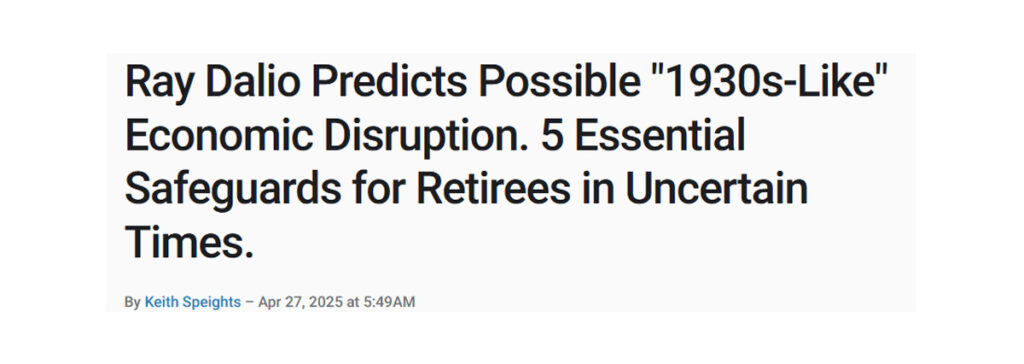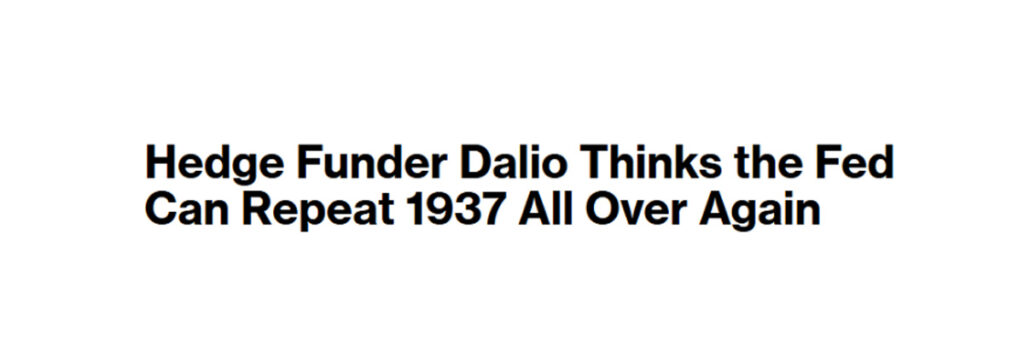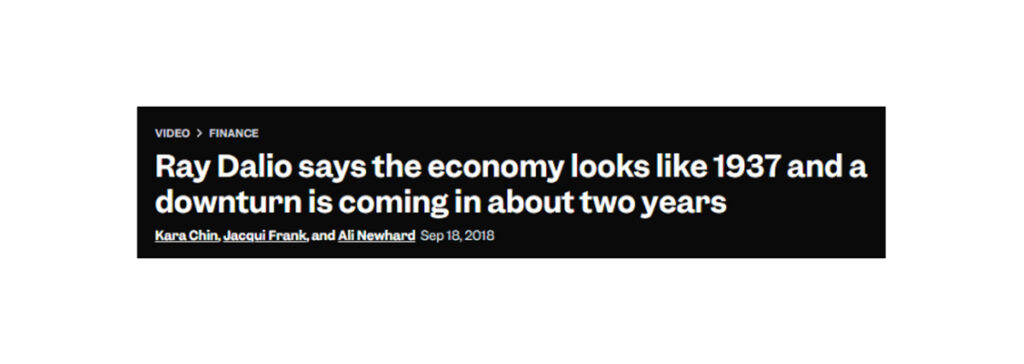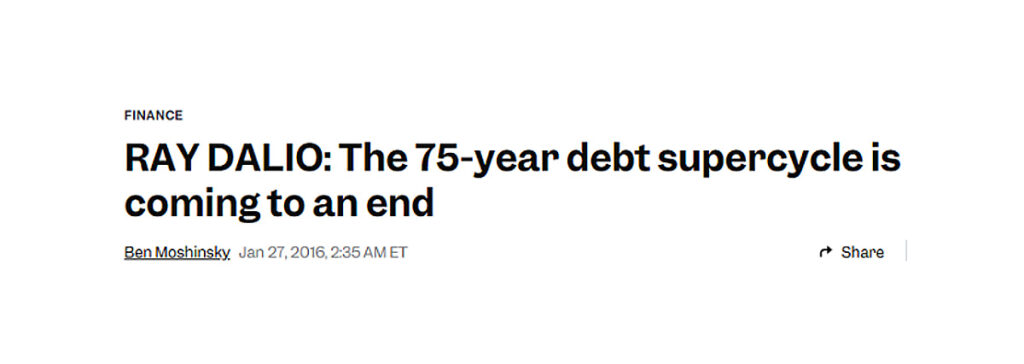The Surroundup
INFORMATION OVERLOAD
- by Adil Mohammed, CFP®, CIM®, FCSI®
- April 29, 2025
“Hearing everyone’s thoughts 24/7 is the worst thing to happen to society since the mosquito.” – Michael Antonelli
In an age where data is endless and our screens never sleep, the investing world has become both more accessible and more overwhelming. Economic reports, breaking financial news, algorithmic trading signals, and thousands of voices on social media all compete for our attention—creating a nonstop firehose of information. While having access to real-time data and expert insights was once a luxury, today it’s the norm. But with this convenience comes a new challenge: information overload.
Let’s break down how this is affecting investors, starting with the sheer volume of economic data we’re expected to process.
The Avalanche of Economic Indicators
Every week, a barrage of official economic reports is released. Jobless claims. Inflation readings. Retail sales. Housing starts. Manufacturing surveys. Interest rate announcements. Global economic forecasts. Each data point is dissected, analyzed, and quickly turned into headlines—and often countered with opposing interpretations.
For example, a rise in unemployment might be seen as a negative sign for the economy, but also as a positive signal that the Central bank could cut interest rates. Similarly, strong retail sales (i.e. consumer spending) may suggest economic strength or could stoke inflation fears. Every number seems to carry a double meaning, depending on who you ask and when you ask them.
It’s nearly impossible to interpret all of this correctly—or even to determine which pieces of data matter most in a given moment.
The Noise of Financial Media Headlines
If the data doesn’t get you, the headlines will. Financial news outlets thrive on urgency. With competition from 24-hour news cycles and online clicks, the media often amplifies market moves with attention-grabbing headlines that stoke fear or greed:
This will likely worry many people, until you realize that he’s been trying to call a 1930’s type event for a long time….
Here’s 2015:
Here’s 2018:
Oh wait, here’s 2016:
These headlines rarely tell the full story and often focus on short-term moves that have little bearing on long-term investment goals. The problem is, we’re hardwired to respond emotionally to threats and rewards.
Suffice to say, even the most seasoned investors can fall into the trap of reacting impulsively to media-driven narratives.
This leads to panic selling, chasing trends, or simply freezing in indecision.
The Echo Chamber of Social Media
If traditional media is a megaphone, social media is an echo chamber.
Platforms like Twitter (X), Reddit, TikTok, and YouTube have given rise to a new breed of market influencers. Some offer valuable insights—but many push hype, misinformation, or promote their own interests under the guise of advice. The speed and spread of ideas on social media can create herd behavior, driving speculative bubbles or unnecessary panic.
In recent years, we’ve seen retail investor movements like GameStop and AMC explode overnight. Crypto assets have surged and crashed based on viral trends. Suddenly, everyone is a financial expert—or at least has a loud opinion.
It’s no wonder many investors feel anxious, confused, and constantly behind.
Information Chaos: The Erosion of Clarity and Trust under Trump 2.0
Information overload has taken on a whole new meaning under Trump 2.0 and there’s nowhere to hide.
Just this week, Trump indicated he wanted to fire Jerome Powell (leader of the US Central Bank). A day or two later, he said he had no intention of firing him.
Then we heard that tariff negotiations were underway with China until Beijing said no talks are occurring.
The flow of information has become markedly more chaotic and confusing, often shifting hour by hour in tone, content, and accuracy. This unpredictability is amplified by Trump’s frequent use of social media to announce policy changes, contradict official statements, or attack political opponents, all without the usual vetting process. Traditional communication channels and institutions—like the White House press briefings or federal agencies—are regularly undermined or bypassed, leading to a constant state of uncertainty. Reporters, officials, and citizens and investors alike struggle to keep up with the rapid-fire updates and reversals, creating a media environment where facts feel fleeting and narratives shift in real time.
The Psychological Toll of Always Being “On”
What makes today’s information overload so different from the past is the constant connectivity.
Our phones ping us with market updates, economic alerts, breaking news, and social opinions 24/7. There’s no off-switch unless we choose to unplug—and that’s easier said than done in a culture where FOMO (fear of missing out) is real.
The result is decision fatigue. When we’re bombarded with conflicting information and emotional triggers, our ability to make rational investment choices declines. We either overreact or shut down entirely—neither of which leads to optimal outcomes.
Finding Clarity in the Chaos
So, what can we do:
- Curate your information: Be selective about your sources. Check in with us, your financial advisory team, ignore sensationalist headlines, and tune out noise that doesn’t align with your strategy.
- Limit your exposure: Set boundaries around when and how often you check financial news or social media. Daily portfolio monitoring is rarely necessary for long-term investors.
- Focus on what matters: Stick to your plan, understand your risk tolerance, and don’t get swayed by every new data point or hot take.
- Practice patience: In a world that rewards instant reaction, patience is a competitive advantage. Let time and discipline work in your favor.
We live in a remarkable time where anyone can access the same information, economic data and investment tools once reserved for Wall Street. But with that power comes the challenge of filtering signal from noise.
Information overload is real—and unless we manage it, it can do more harm than good.
In investing, as in life, clarity doesn’t come from having more information—it comes from knowing what to ignore.
Adil Mohammed, CFP®, CIM®, FCSI®
Wealth Advisor
Assante Financial Management Ltd.
The opinions expressed are those of the author and not necessarily those of Assante Financial Management Ltd. This material is provided for general information and the opinions expressed and information provided herein are subject to change without notice. Every effort has been made to compile this material from reliable sources however no warranty can be made as to its accuracy or completeness. Before acting on the information presented, please seek professional financial advice based on your personal circumstances.






